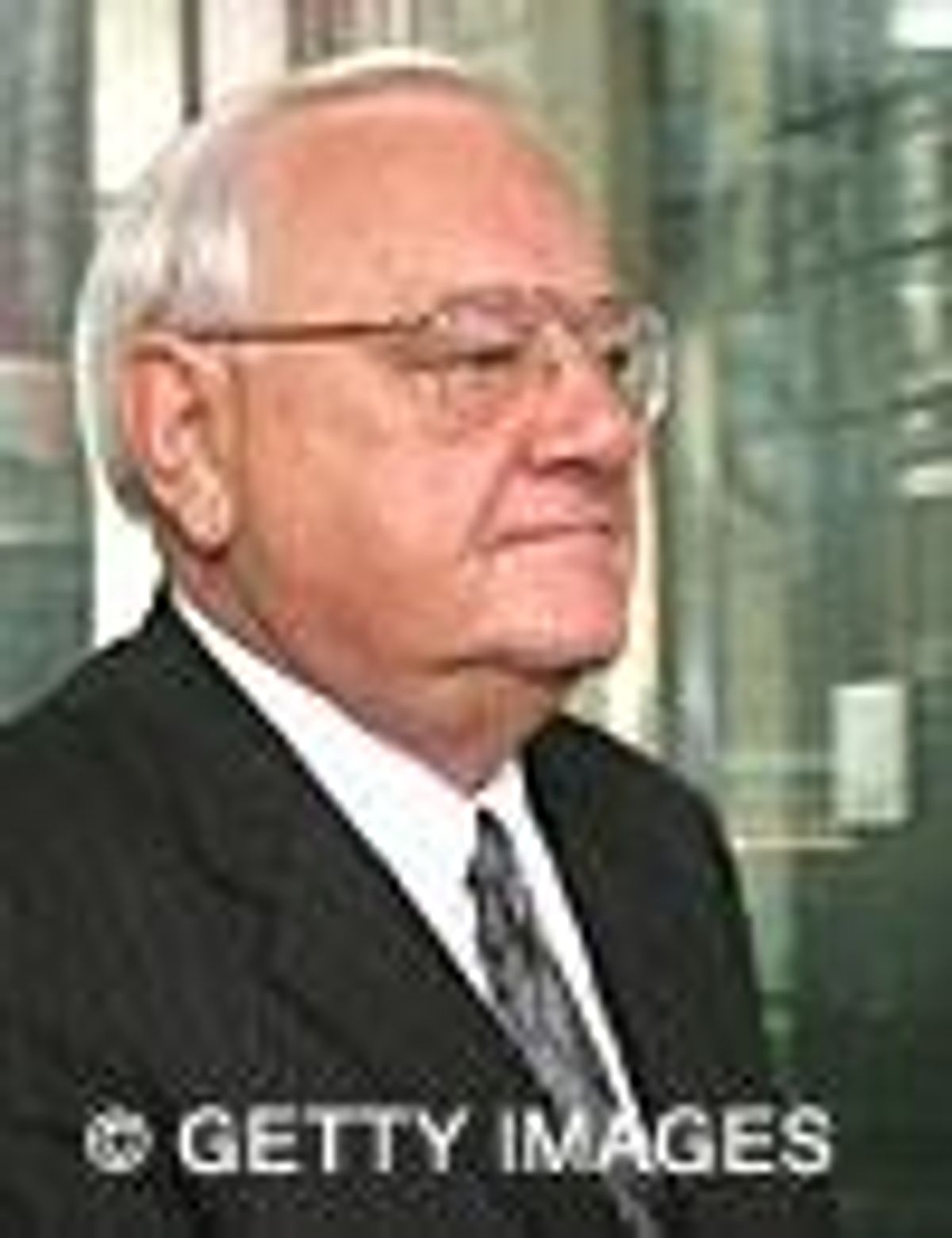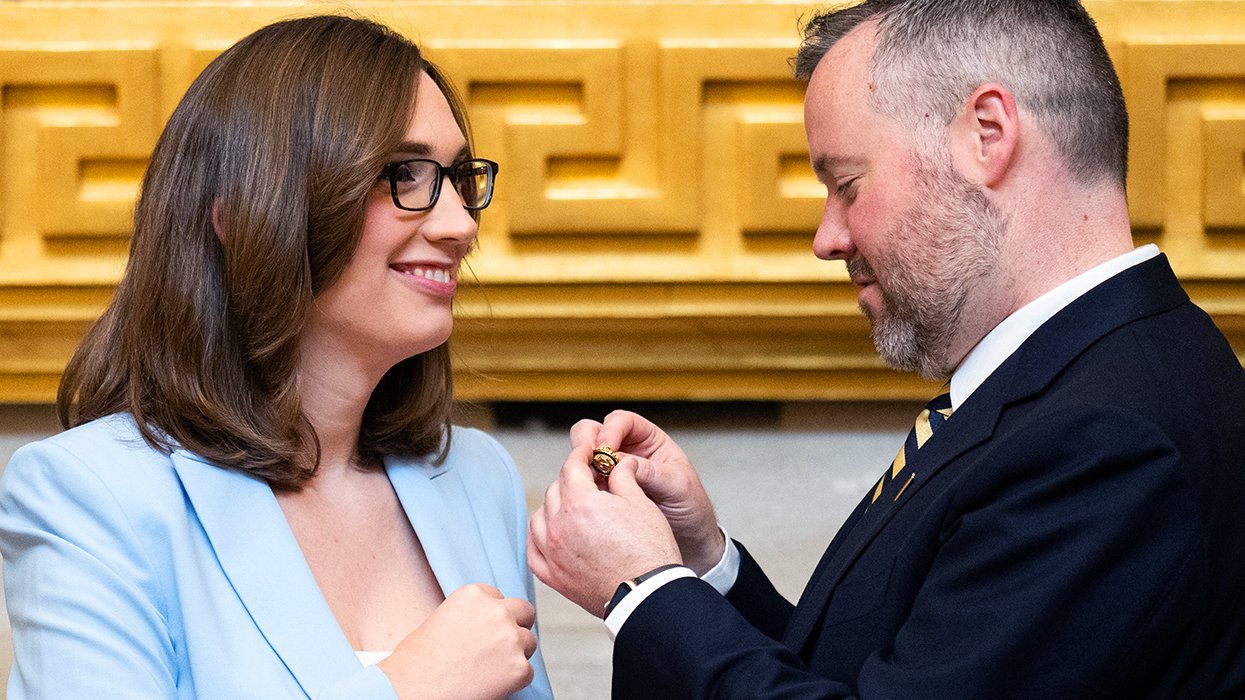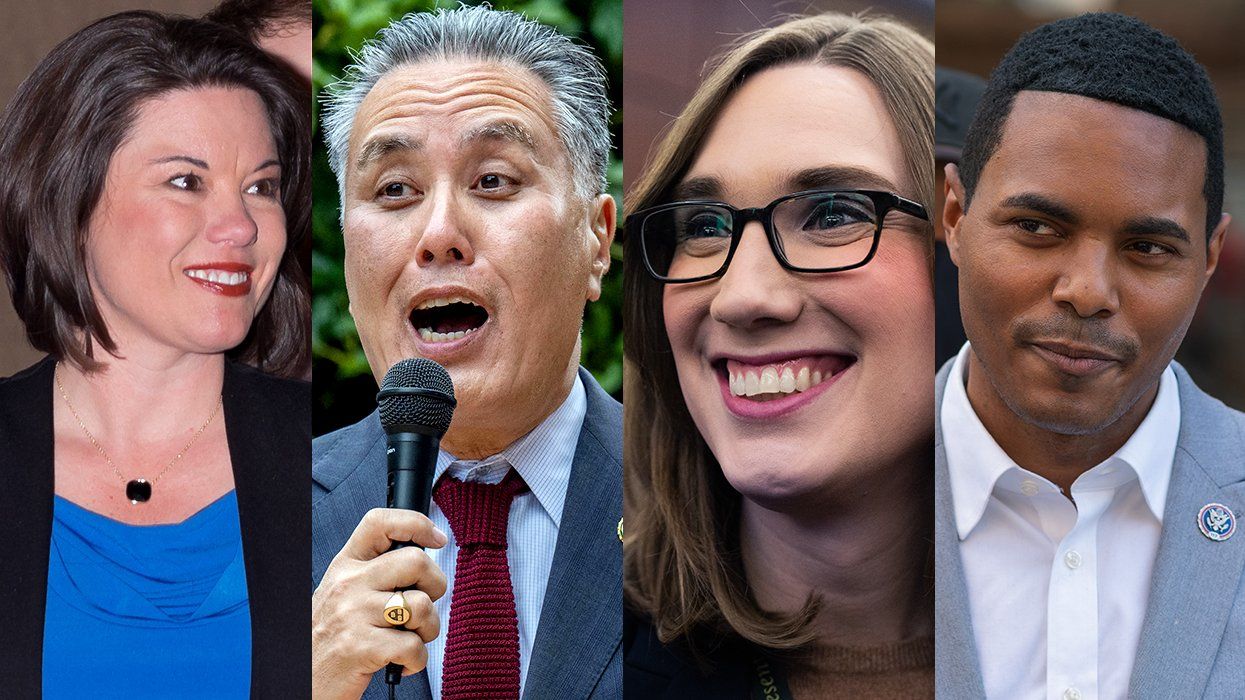It began with an
embarrassing blunder.
A memo describing behind-the-scenes efforts to
win the gay vote for George Ryan in his 1998 race for
Illinois governor was supposed to have been for
internal campaign use only. But through an incredible error
it was accidentally faxed to a Champaign radio
station. Soon the details it contained were blaring
across the airwaves.
The memo suggested that the
then-secretary of state's employees were
campaigning for the Republican on state time. Before the
dust settled, state police were called in to investigate.
Seven years later, the Ryan campaign's low-key,
half-hidden efforts to win the gay vote without
triggering a conservative backlash are still touching
off fireworks--this time at the former governor's
federal racketeering and fraud trial, heading into its
10th week.
Ryan, 71, and his lobbyist friend Larry Warner,
67, are charged in a 22-count federal indictment with
racketeering, mail fraud, and other offenses. Among
other things, Ryan is accused of using state employees to
do campaign work while they were being paid by taxpayers.
Prosecutors say the memo about the gay vote proves it.
Ryan and Warner say nothing they did was illegal.
U.S. district judge Rebecca R. Pallmeyer was
expected to decide as soon as Monday how much of the
memo's story can be told in court. Ryan's attorney,
Bradley E. Lerman, also wants jurors to hear Ryan's record
in favor of gay rights or hear nothing at all. "I
don't want politics in the record unless we can't tell
the story without them," Pallmeyer said last week
before the trial broke for Thanksgiving.
The memo outlined a campaign of guest
editorials, ads, and letters to the editors of gay
newspapers putting the spotlight on his Democratic rival's
record of opposing gay rights bills. It also said that an
employee in the secretary of state's office "has asked
permission to establish a committee to give this drive
more legitimacy."
Prosecutors say that after the campaign, Warner
tried to slip money quietly to leaders of a group
called Progressives in Politics, which had been formed
to mobilize gay voters for Ryan. Prosecutors say the group
wound up $2,000 to $3,000 in debt after the campaign and
went to a Ryan aide for reimbursement. According to
prosecutors, he sent them to Warner, saying Ryan's old
lobbyist friend would pay them. Warner offered them a
check, prosecutors say.
Lerman said the story makes it look as if Ryan
were sneaking away from his association with gay
voters. Defense attorneys have another problem with
the story too. The group wouldn't take Warner's money. After
thinking about it, the members tore up the check, took up a
collection among themselves, and paid off the debt.
Warner attorney Edward M. Genson said it would
be unfair to place suspicion in the minds of jurors by
saying the check was torn up or that anyone was afraid
to take his client's money. (AP)



















































































